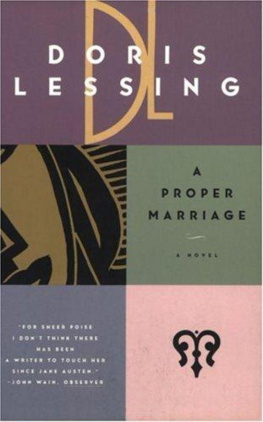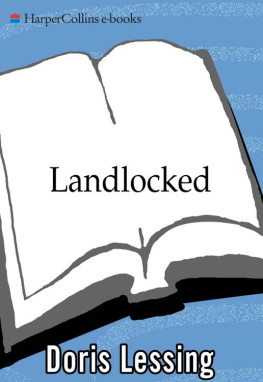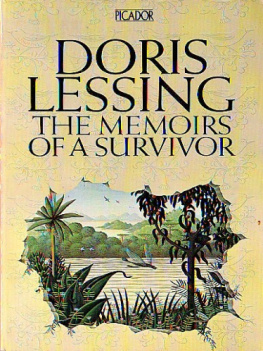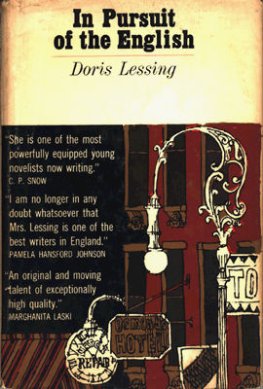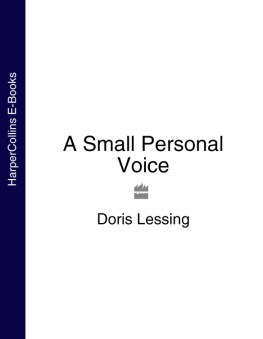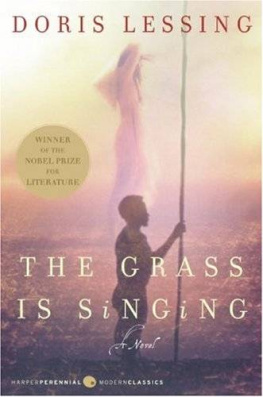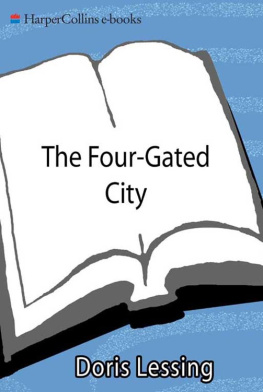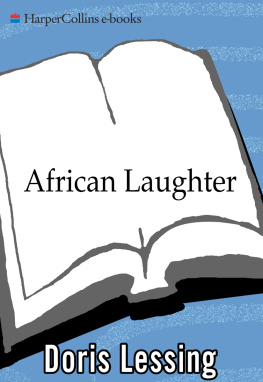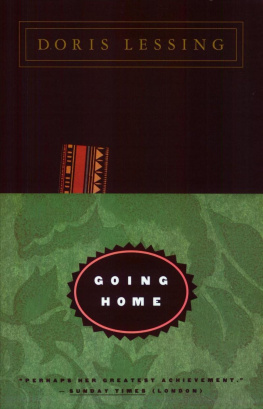Doris Lessing - Stories
Here you can read online Doris Lessing - Stories full text of the book (entire story) in english for free. Download pdf and epub, get meaning, cover and reviews about this ebook. year: 2010, publisher: Knopf Group E-Books, genre: Art. Description of the work, (preface) as well as reviews are available. Best literature library LitArk.com created for fans of good reading and offers a wide selection of genres:
Romance novel
Science fiction
Adventure
Detective
Science
History
Home and family
Prose
Art
Politics
Computer
Non-fiction
Religion
Business
Children
Humor
Choose a favorite category and find really read worthwhile books. Enjoy immersion in the world of imagination, feel the emotions of the characters or learn something new for yourself, make an fascinating discovery.

- Book:Stories
- Author:
- Publisher:Knopf Group E-Books
- Genre:
- Year:2010
- Rating:4 / 5
- Favourites:Add to favourites
- Your mark:
- 80
- 1
- 2
- 3
- 4
- 5
Stories: summary, description and annotation
We offer to read an annotation, description, summary or preface (depends on what the author of the book "Stories" wrote himself). If you haven't found the necessary information about the book — write in the comments, we will try to find it.
Stories — read online for free the complete book (whole text) full work
Below is the text of the book, divided by pages. System saving the place of the last page read, allows you to conveniently read the book "Stories" online for free, without having to search again every time where you left off. Put a bookmark, and you can go to the page where you finished reading at any time.
Font size:
Interval:
Bookmark:
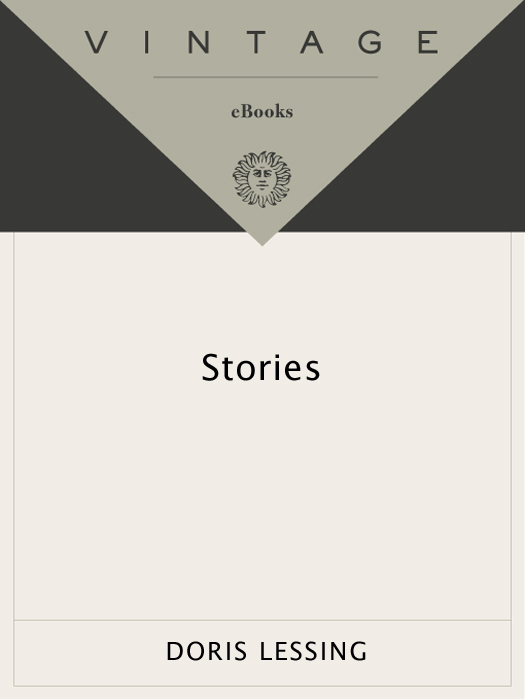
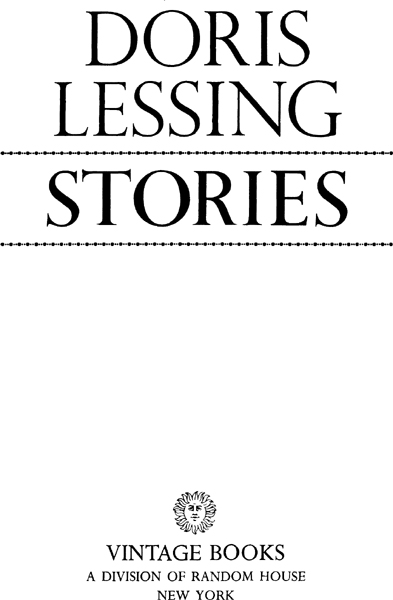


I n 1947 George wrote again to Myra, saying that now the war was well over she should come home and marry him. She wrote back from Australia, where she had gone with her two children in 1943 because there were relations there, saying she felt they had drifted apart; she was no longer sure she wanted to marry George. He did not allow himself to collapse. He cabled her the air fare and asked her to come over and see him. She came, for two weeks, being unable to leave the children for longer. She said she liked Australia; she liked the climate; she did not like the English climate any longer; she thought England was, very probably, played out; and she had become used to missing London. Also, presumably, to missing George Talbot.
For George this was a very painful fortnight. He believed it was painful for Myra, too. They had met in 1938, had lived together for five years, and had exchanged for four years the letters of lovers separated by fate. Myra was certainly the love of his life. He had believed he was of hers until now. Myra, an attractive woman made beautiful by the suns and beaches of Australia, waved goodbye at the airport, and her eyes were filled with tears.
Georges eyes, as he drove away from the airport, were dry. If one person has loved another truly and wholly, then it is more than love that collapses when one side of the indissoluble partnership turns away with a tearful goodbye. George dismissed the taxi early and walked through St. Jamess Park. Then it seemed too small for him, and he went to the Green Park. Then he walked into Hyde Park and through to Kensington Gardens. When the dark came and they closed the great gates of the park he took a taxi home. He lived in a block of flats near the Marble Arch. For five years Myra had lived with him there, and it was here he had expected to live with her again. Now he moved into a new flat near Covent Garden. Soon after that he wrote Myra a very painful letter. It occurred to him that he had often received such letters, but had never written one before. It occurred to him that he had entirely underestimated the amount of suffering he must have caused in his life. But Myra wrote him a sensible letter back, and George Talbot told himself that now he must finally stop thinking about Myra.
Therefore he became rather less of a dilettante in his work than he had been recently, and he agreed to produce a new play written by a friend of his. George Talbot was a man of the theatre. He had not acted in it for many years now; but he wrote articles, he sometimes produced a play, he made speeches on important occasions and was known by everyone. When he went into a restaurant people tried to catch his eye, and he often did not know who they were. During the four years since Myra had left, he had had a number of affairs with young women round and about the theatre, for he had been lonely. He had written quite frankly to Myra about these affairs, but she had never mentioned them in her letters. Now he was very busy for some months and was seldom at home; he earned quite a lot of money, and he had a few more affairs with women who were pleased to be seen in public with him. He thought about Myra a great deal, but he did not write to her again, nor she to him, although they had agreed they would always be great friends.
One evening in the foyer of a theatre he saw an old friend of his he had always admired, and he told the young woman he was with that that man had been the most irresistible man of his generationno woman had been able to resist him. The young woman stared briefly across the foyer and said, Not really?
When George Talbot got home that night he was alone, and he looked at himself with honesty in the mirror. He was sixty, but he did not look it. Whatever had attracted women to him in the past had never been his looks, and he was not much changed: a stoutish man, holding himself erect, grey-haired, carefully brushed, well-dressed. He had not paid much attention to his face since those many years ago when he had been an actor; but now he had an uncharacteristic fit of vanity and remembered that Myra had admired his mouth, while his wife had loved his eyes. He took to taking glances at himself in foyers and restaurants where there were mirrors, and he saw himself as unchanged. He was becoming conscious, though, of a discrepancy between that suave exterior and what he felt. Beneath his ribs his heart had become swollen and soft and painful, a monstrous area of sympathy playing enemy to what he had been. When people made jokes he was often unable to laugh; and his manner of talking, which was light and allusive and dry, must have changed, because more than once old friends asked him if he was depressed, and they no longer smiled appreciatively as he told his stories. He gathered he was not being good company. He understood he might be ill, and he went to the doctor. The doctor said there was nothing wrong with his heart, he had thirty years of life in him yetluckily, he added respectfully, for the British theatre.
George came to understand that the word heartache meant that a person could carry a heart that ached around with him day and night for, in his case, months. Nearly a year now. He would wake in the night, because of the pressure of pain in his chest; in the morning he woke under a weight of grief. There seemed to be no end to it; and this thought jolted him into two actions. First, he wrote to Myra a tender, carefully phrased letter, recalling the years of their love. To this he got, in due course, a tender and careful reply. Then he went to see his wife. With her he was, and had been for many years, good friends. They saw each other often, but not so often now the children were grownup; perhaps once or twice a year, and they never quarrelled.
His wife had married again after they divorced, and now she was a widow. Her second husband had been a member of Parliament, and she worked for the Labour Party, and she was on a Hospital Advisory Committee and on the Board of Directors of a progressive school. She was fifty, but did not look it. On this afternoon she was wearing a slim grey suit and grey shoes, and her grey hair had a wave of white across the front which made her look distinguished. She was animated, and very happy to see George; and she talked about some deadhead on her hospital committee who did not see eye to eye with the progressive minority about some reform or other. They had always had their politics in common, a position somewhere left of center in the Labour Party. She had sympathised with his being a pacifist in the First World Warhe had been for a time in prison because of it; he had sympathised with her militant feminism. Both had helped the strikers in 1926. In the Thirties, after they were divorced, she had helped with money when he went on tour with a company acting Shakespeare to people on the dole, or hunger-marching.
Myra had not been at all interested in politics, only in her children. And in George, of course.
George asked his first wife to marry him again, and she was so startled that she let the sugar tongs drop and crack a saucer. She asked what had happened to Myra, and George said: Well, dear, I think Myra forgot about me during those years in Australia. At any rate, she doesnt want me now. When he heard his voice saying this it sounded pathetic, and he was frightened, for he could not remember ever having to appeal to a woman. Except to Myra.
Font size:
Interval:
Bookmark:
Similar books «Stories»
Look at similar books to Stories. We have selected literature similar in name and meaning in the hope of providing readers with more options to find new, interesting, not yet read works.
Discussion, reviews of the book Stories and just readers' own opinions. Leave your comments, write what you think about the work, its meaning or the main characters. Specify what exactly you liked and what you didn't like, and why you think so.

